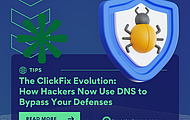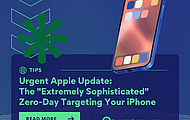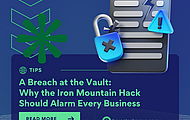The Dangers of Easy-to-Guess Passwords: A Wake-Up Call from the Louvre Museum Cybersecurity Breach

It's easy to overlook how susceptible we are to the most basic type of digital insecurity—weak passwords—in a time when cybersecurity threats are growing more complex. The Louvre Museum in Paris recently became embroiled in a cybersecurity issue, but it wasn't due to a sophisticated hacking attempt; rather, it was the result of an employee exploiting a clear flaw in the organization's security system: a password that was too simple to crack.
The password in question? Just "Louvre."
Although embarrassing for one of the most recognizable organizations in the world, this hack serves as a clear reminder of the importance of using complicated passwords to safeguard your company against online attacks. It's obvious that companies of all sizes need to reconsider how they handle password security if even an organization like the Louvre can be affected by such a simple mistake.
The Louvre Incident: A Wake-Up Call on Weak Passwords
The video surveillance system at the Louvre Museum was penetrated because it had a single, simple-to-guess password: "Louvre." An employee was able to obtain illegal access to important data and systems because to this extremely simple password, which anyone with a rudimentary awareness of the museum's identity could have easily deciphered.
Poor password management was the direct cause of this incident, rather than skilled hacking. It also emphasizes how risky it might be to depend on passwords that are clear, simple to remember, or closely associated with the name or brand of the company. An attacker might only need to try a few permutations of your name, brand, or popular words to access your systems if they are familiar with your company.
Why Simple Passwords Are a Cybersecurity Risk
For simplicity, a lot of people select easy-to-remember passwords. However, the Louvre hack demonstrates how risky such ease may be. In actuality, fraudsters frequently target weak passwords first. Simple passwords like "Louvre" (or "123456" or "password") are among the first to be hacked by hackers using automated techniques. An attacker may be able to access private information, sensitive systems, and company activities after a password is compromised.
It's also crucial to remember that weak passwords affect more than simply external threats. Insider threats, whether deliberate or unintentional, can exploit the same weaknesses, as demonstrated by the Louvre incident. The organization as a whole is at danger when workers or contractors use passwords that are too easy.
The Importance of Creating Complex Passwords
The lesson here is simple: the more complex and unique your password, the better your chances of keeping hackers out. A strong password should be:
- Long – Aim for at least 12-16 characters.
- Random – Avoid using easily guessable words or phrases like "Louvre," "password," or "12345."
- Varied – Use a combination of upper- and lowercase letters, numbers, and special characters.
- Unique – Never reuse passwords across multiple systems or accounts.
In addition to creating strong passwords, you should also implement multi-factor authentication (MFA). MFA adds layer of security, requiring users to provide two or more forms of verification before accessing sensitive systems. This could include a code sent to your phone or a biometric scan, in addition to your password.
Protecting Your Business: A Simple Step to Prevent Cybersecurity Threats
The Louvre Museum probably could have prevented this incident if it had deployed MFA on its video surveillance equipment or used a more complicated and secure password. This breach was the result of a straightforward disregard for fundamental password security procedures rather than a sophisticated cyberattack.
Businesses of all sizes are at risk if they don't take password security seriously; thus, this situation isn't only a lesson for well-known organizations. Strong and distinctive passwords should be your first line of protection, whether you're safeguarding employee information, client data, or secret business technology.
How Bayon Technologies Group Can Help You Maintain Your Online Safety
Our specialty at Bayon Technologies Group is offering companies the cybersecurity solutions they need to guard against straightforward but dangerous risks like weak passwords. To make sure your systems are protected from intrusions, our team of professionals can assist you with implementing multi-factor authentication, creating secure password rules, and conducting thorough security audits.
Act now rather than waiting for a breach to occur. Get in touch with us right now to find out how we can protect your company's vital data and operations from changing threats by implementing strong cybersecurity measures.
‹ Back







